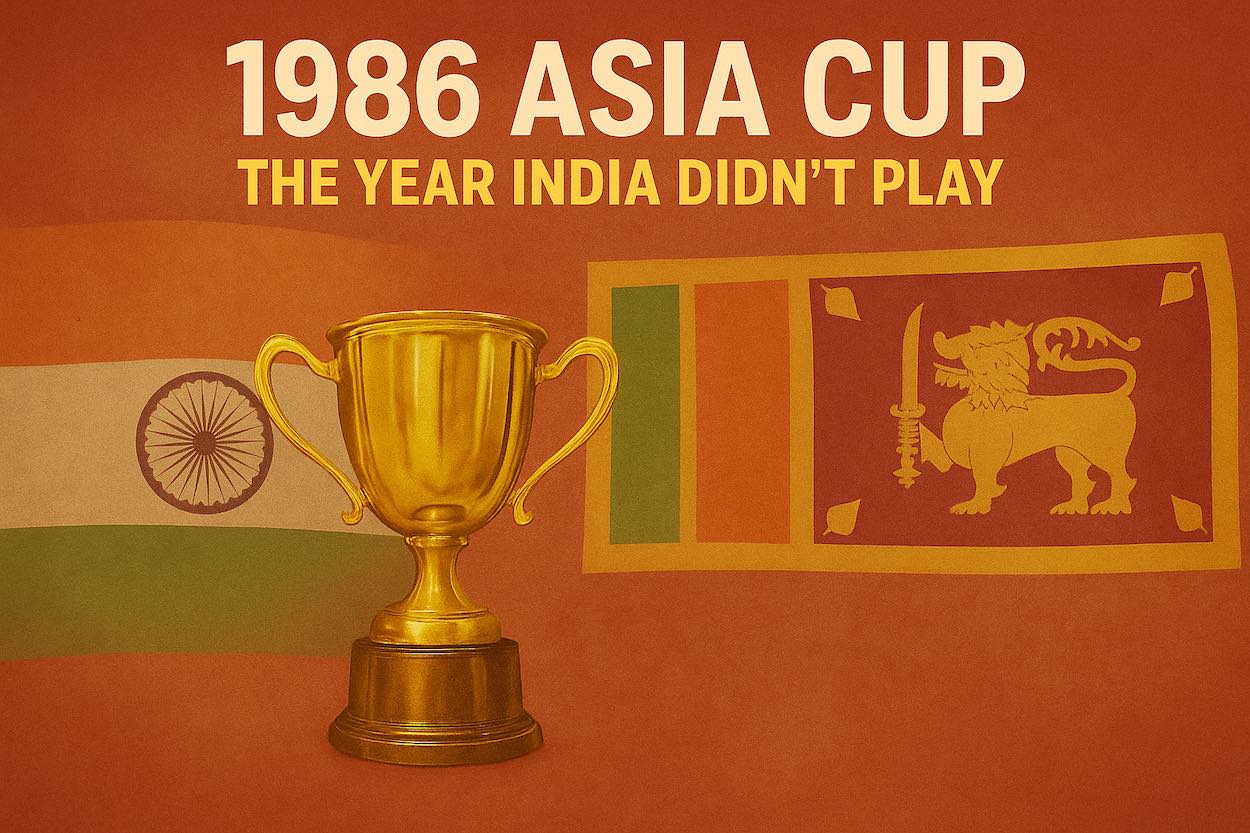Unpacking India’s 1986 Asia Cup Boycott: The Reasons Behind the Controversy

As the 17th edition of the Asia Cup takes place in the UAE, the spotlight is on the intense discussions surrounding a potential boycott of the India-Pakistan match. This tournament holds significant historical importance for India, which has been the most successful team in its history. However, there was a notable exception in 1986 when India chose to boycott the event held in Sri Lanka due to political reasons, marking a unique chapter in the tournament’s legacy.
Historical Context of India’s Boycott
The Asia Cup was launched in 1984 in Sharjah, where India, led by Sunil Gavaskar, emerged victorious against Pakistan. India was set to defend its title in the 1986 edition in Sri Lanka, but this tournament became the only one from which India withdrew. The decision was influenced by the political climate in Sri Lanka, which was experiencing civil unrest at the time. The Indian government instructed the Board of Control for Cricket in India (BCCI) not to send the national team, leading to India’s absence from the competition.
This boycott inadvertently opened the door for Bangladesh, which had not yet played an ODI, to participate in the tournament. Despite their defeats to Pakistan and Sri Lanka, Bangladesh’s entry was a significant milestone for the nation. Meanwhile, Sri Lanka capitalized on the situation, winning their first Asia Cup title, a victory that began their tradition of competing in every subsequent edition of the tournament.
Political Influences on Cricketing Relations
The political tensions between India and Sri Lanka during that period were exacerbated by a controversial cricket series held the previous year. This strained relationship contributed to India’s decision to withdraw from the 1986 Asia Cup. In contrast, the current political landscape has seen the Indian government permit participation in international tournaments involving Pakistan, a stance that the BCCI has aligned with. This shift in policy has allowed India to compete in the ongoing Asia Cup, reflecting a more open approach to cricketing relations despite historical tensions.
The Legacy of the Asia Cup
The Asia Cup has often served as a platform for cricketing rivalries, but it has also been significantly shaped by the political dynamics of the region. India’s boycott in 1986 serves as a reminder of how external factors can influence sporting events. Since returning to the tournament in 1988, when they won the title again by defeating Sri Lanka, India has maintained a strong presence in the Asia Cup. The tournament has evolved, showcasing emerging cricketing nations and fostering competitive spirit among established teams.
As the Asia Cup continues, the interplay between sports and politics remains a crucial aspect of its narrative. The ongoing discussions about boycotts and participation highlight the delicate balance between national interests and the spirit of the game. The history of the Asia Cup, particularly India’s unique experience in 1986, underscores the complexities that can arise when cricket intersects with political realities.
Observer Voice is the one stop site for National, International news, Sports, Editor’s Choice, Art/culture contents, Quotes and much more. We also cover historical contents. Historical contents includes World History, Indian History, and what happened today. The website also covers Entertainment across the India and World.

